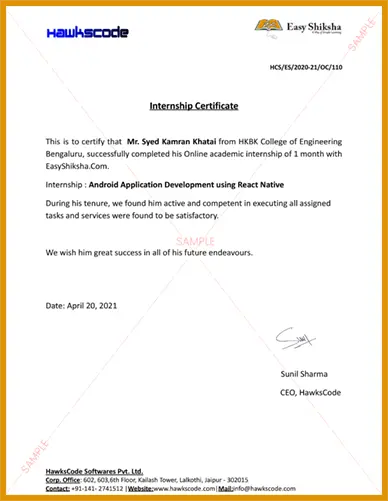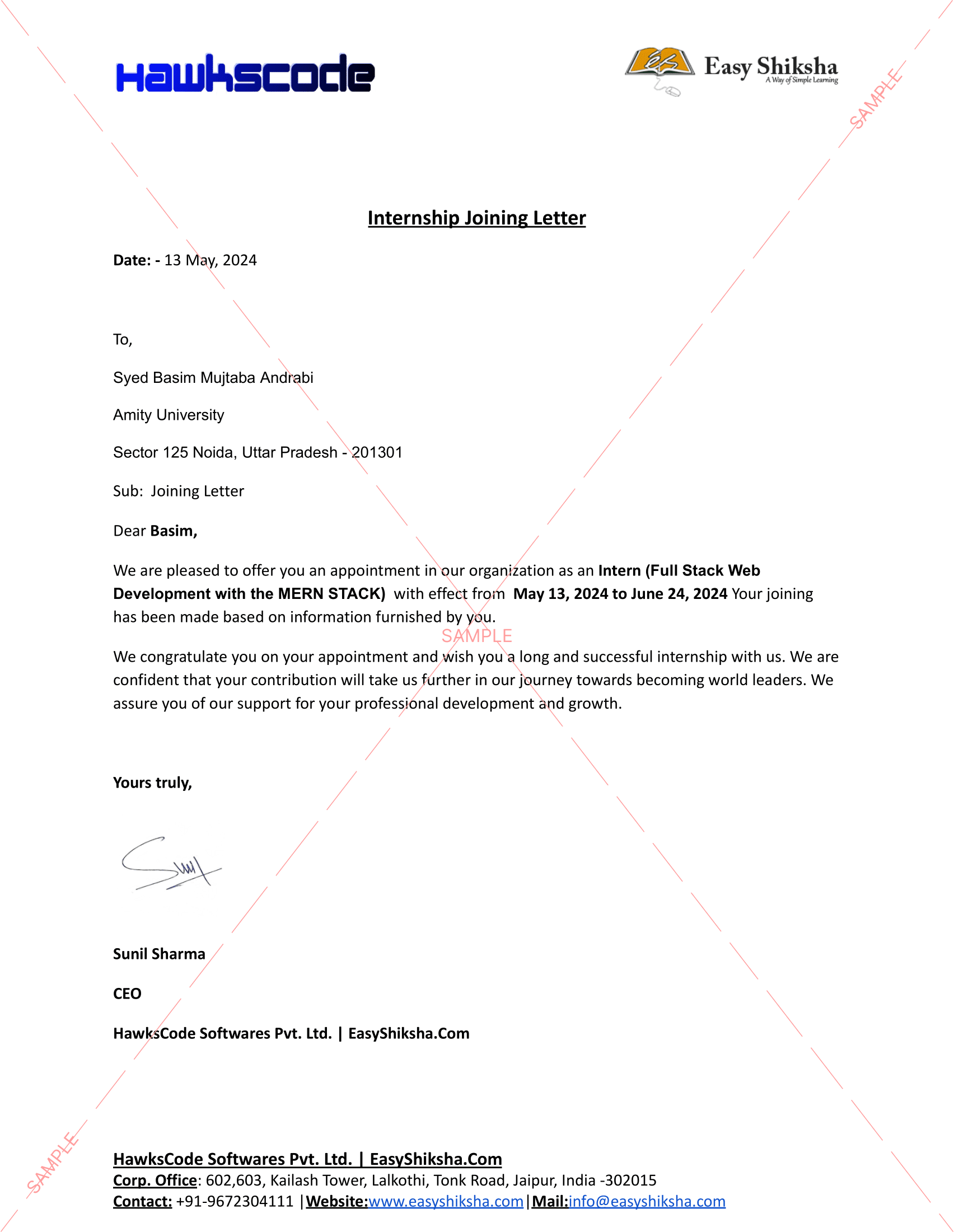Choosing the right Full Stack Developer Course can be a game-changer for your career, but with numerous options available, it’s essential to ensure that the course you choose delivers practical, real-world skills. This guide will help you evaluate whether a Full Stack Developer Course provides the hands-on experience and relevant knowledge you need to succeed in the industry. For more detailed information and course recommendations, visit EasyShiksha.com.
Top Courses in Programming Language
What Should You Look for in the Course Curriculum?
To determine if a Full Stack Developer Course offers practical, real-world skills, start by examining the course curriculum. A comprehensive and up-to-date curriculum should cover the following key areas:
- Front-End Development: The course should include extensive training on HTML, CSS, and JavaScript. It should also cover modern frameworks and libraries such as React, Angular, or Vue.js, which are crucial for developing dynamic user interfaces.
- Back-End Development: Look for courses that provide in-depth knowledge of server-side programming languages like Node.js, Python, Ruby, or Java. The course should also cover databases (SQL and NoSQL) and server management.
- Full Stack Integration: A well-rounded course should teach you how to integrate front-end and back-end technologies effectively. This includes understanding APIs, web services, and version control systems like Git.
- Project-Based Learning: Ensure that the course includes real-world projects that require you to apply what you’ve learned. Projects should mimic industry scenarios, enabling you to build practical skills.
- Industry-Relevant Tools and Technologies: The course should cover tools and technologies currently used in the industry, such as Docker, Kubernetes, and cloud platforms like AWS or Azure.
How Can You Assess the Quality of the Course Instructors?
The expertise and teaching style of course instructors can significantly impact your learning experience. Here’s how to evaluate their quality:
- Instructor Experience: Check the professional background of the instructors. They should have substantial experience in full stack development and a track record of working on real-world projects.
- Teaching Credentials: Look for instructors with teaching experience or relevant certifications. They should be able to explain complex concepts clearly and provide valuable industry insights.
- Reviews and Testimonials from Students: Examine comments and endorsements from past pupils. Feedback about the instructors’ teaching methods and their ability to provide practical knowledge can offer insights into their effectiveness.
- Engagement and Support: Assess how engaged the instructors are with students. They should be available for questions, provide timely feedback on assignments, and support students through challenges.
What Role Do Real-World Projects Play in the Course?
Real-world projects are crucial for gaining practical, hands-on experience. Here’s why they are important:
- Application of Knowledge: Projects allow you to apply theoretical knowledge to practical scenarios, helping you understand how different technologies and tools work together.
- Portfolio Development: Working on projects helps you build a portfolio that showcases your skills to potential employers. A strong portfolio with diverse projects can significantly enhance your job prospects.
- Problem-Solving Skills: Projects often involve solving real-world problems, which helps you develop critical thinking and problem-solving skills that are highly valued in the industry.
- Feedback and Improvement: Projects provide opportunities for feedback from instructors and peers, allowing you to improve your coding practices and project management skills.
How Important Are Industry Partnerships and Networking Opportunities?
Industry partnerships and networking opportunities can greatly enhance your learning experience. Here’s why they matter:
- Real-World Exposure: Partnerships with companies can provide insights into current industry practices and trends. Some courses offer guest lectures or workshops by industry experts, which can be invaluable.
- Job Placement Assistance: Many courses with industry connections offer job placement assistance or internships, helping you transition from learning to working.
- Networking Opportunities: Networking events, meetups, and industry connections can help you build professional relationships, find mentors, and explore job opportunities.
- Reputation and Credibility: Courses that collaborate with reputable companies often have higher credibility and can enhance your resume’s appeal to employers.
For courses with strong industry connections, visit EasyShiksha.com to explore available options.
How Can You Evaluate the Course’s Job Placement and Success Rate?
The success rate and job placement statistics of a course can indicate its effectiveness in preparing students for the job market. Consider the following:
- Job Placement Rate: Check if the course provides data on its job placement rate. A high placement rate suggests that the course effectively prepares students for employment.
- Alumni Success Stories: Look for success stories or testimonials from alumni who have secured jobs in the industry. This can provide insights into the course’s impact on career advancement.
- Employer Partnerships: Courses with partnerships with leading tech companies may offer better job placement opportunities and industry connections.
- Career Services: Assess the career support services provided by the course, such as resume workshops, interview coaching, and job search assistance.
How Can You Determine If the Course Offers Ongoing Support and Resources?
Ongoing support and resources are essential for continued learning and skill development. Here’s what to look for:
- Access to Learning Materials: Ensure that the course provides access to learning materials, such as videos, articles, and coding exercises, even after completion.
- Community and Forums: Look for courses that offer access to online communities or forums where you can ask questions, share knowledge, and collaborate with peers.
- Continued Learning Opportunities: Some courses offer advanced modules or additional resources for continued learning. This can be beneficial for staying updated with industry trends and technologies.
- Mentorship and Support: Check if the course includes mentorship opportunities or support from instructors after the course ends. This can provide guidance as you progress in your career.

Internship/Training with universally recognized certificates accepted by all Universities and Industries
Join over 1,00,000 students from 300+ universities who have already completed internships with EasyShiksha and are now employed at leading MNCs.
"Unlock Your Potential, Forge Your Path"
Explore MoreFAQ: Frequently Asked Questions
Q1: How do I know if a Full Stack Developer Course is up-to-date with industry trends?
A1: Review the course curriculum for the latest technologies and tools. Check for updates and revisions to the course content and look for partnerships with industry leaders that ensure relevance to current practices.
Q2: What types of projects should be included in a Full Stack Developer Course?
A2: The course should include a variety of projects that cover both front-end and back-end development, integrate multiple technologies, and address real-world scenarios. Look for projects that contribute to building a comprehensive portfolio.
Q3: Are Full Stack Developer Courses worth the investment if they are free or low-cost?
A3: Free or low-cost courses can be valuable if they offer practical experience, industry-relevant content, and support. Ensure that the course includes hands-on projects, quality instruction, and job placement assistance to maximize your investment.
Q4: How can I find out if a course provides good career support?
A4: Investigate the career services offered by the course, such as resume workshops, interview coaching, and job placement assistance. Look for alumni success stories and job placement statistics to gauge the effectiveness of the career support.
Q5: What should I do if I need additional help or resources after completing a Full Stack Developer Course?
A5: Seek courses that offer ongoing support, such as access to learning materials, online communities, and mentorship. Additionally, consider joining professional groups or networks in the tech industry to continue learning and staying updated.
Also Read: From No Cost to High Impact: 8 Free Internships
Get Courses: web development courses
Conclusion
Determining if a Full Stack Developer Course offers practical, real-world skills involves evaluating several key factors, including the course curriculum, instructor quality, real-world projects, industry partnerships, job placement success, and ongoing support. By thoroughly assessing these aspects, you can ensure that the course you choose provides the hands-on experience and relevant knowledge needed to excel in the industry.
Investing in a well-rounded Full Stack Developer Course can significantly enhance your career prospects, help you build a strong portfolio, and provide you with the skills necessary to thrive in a dynamic tech landscape. Make informed decisions to maximize the benefits of your educational investment and achieve your professional goals.
For more detailed information on Full Stack Developer Courses, visit EasyShiksha.com.







































.jpg)































